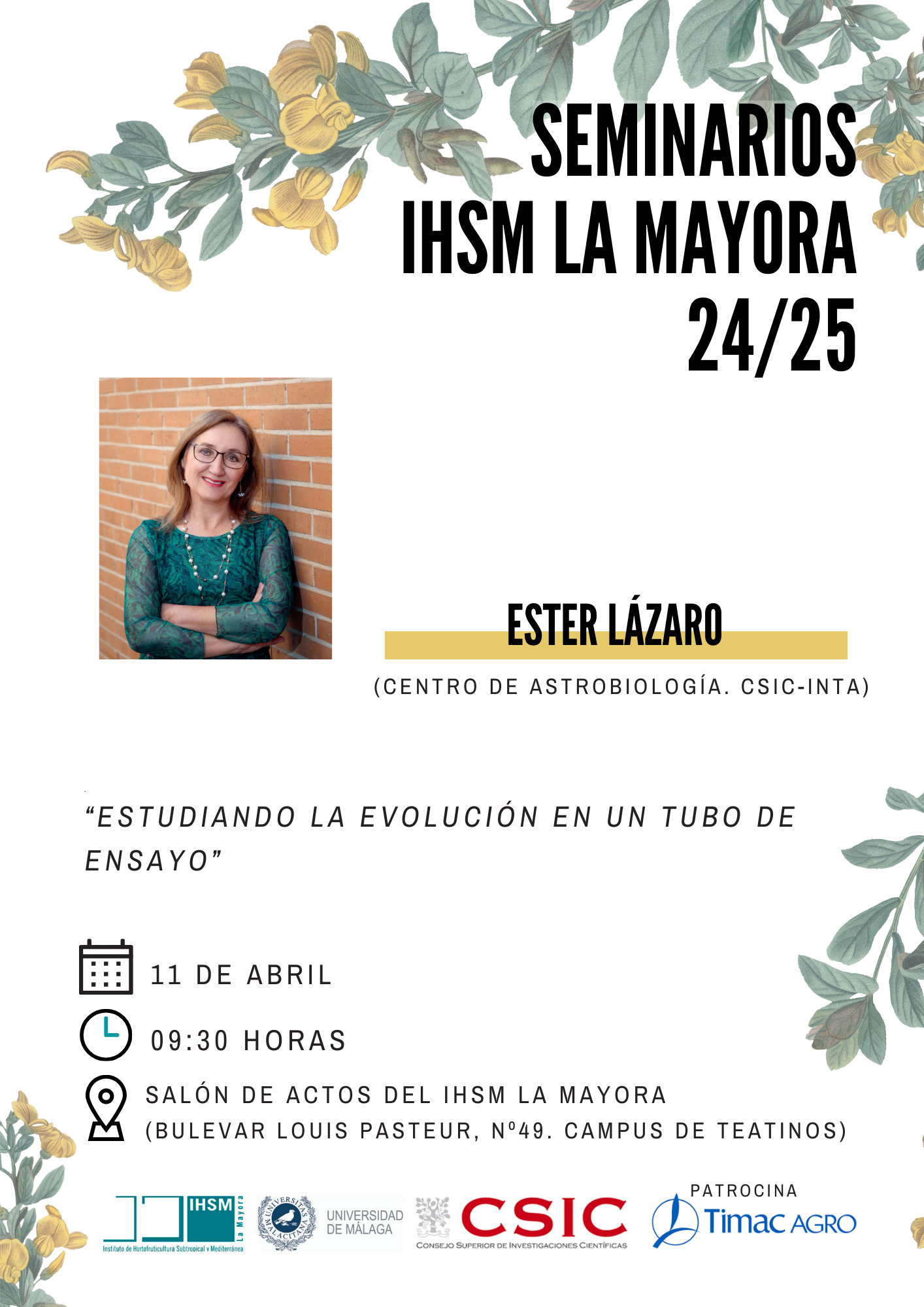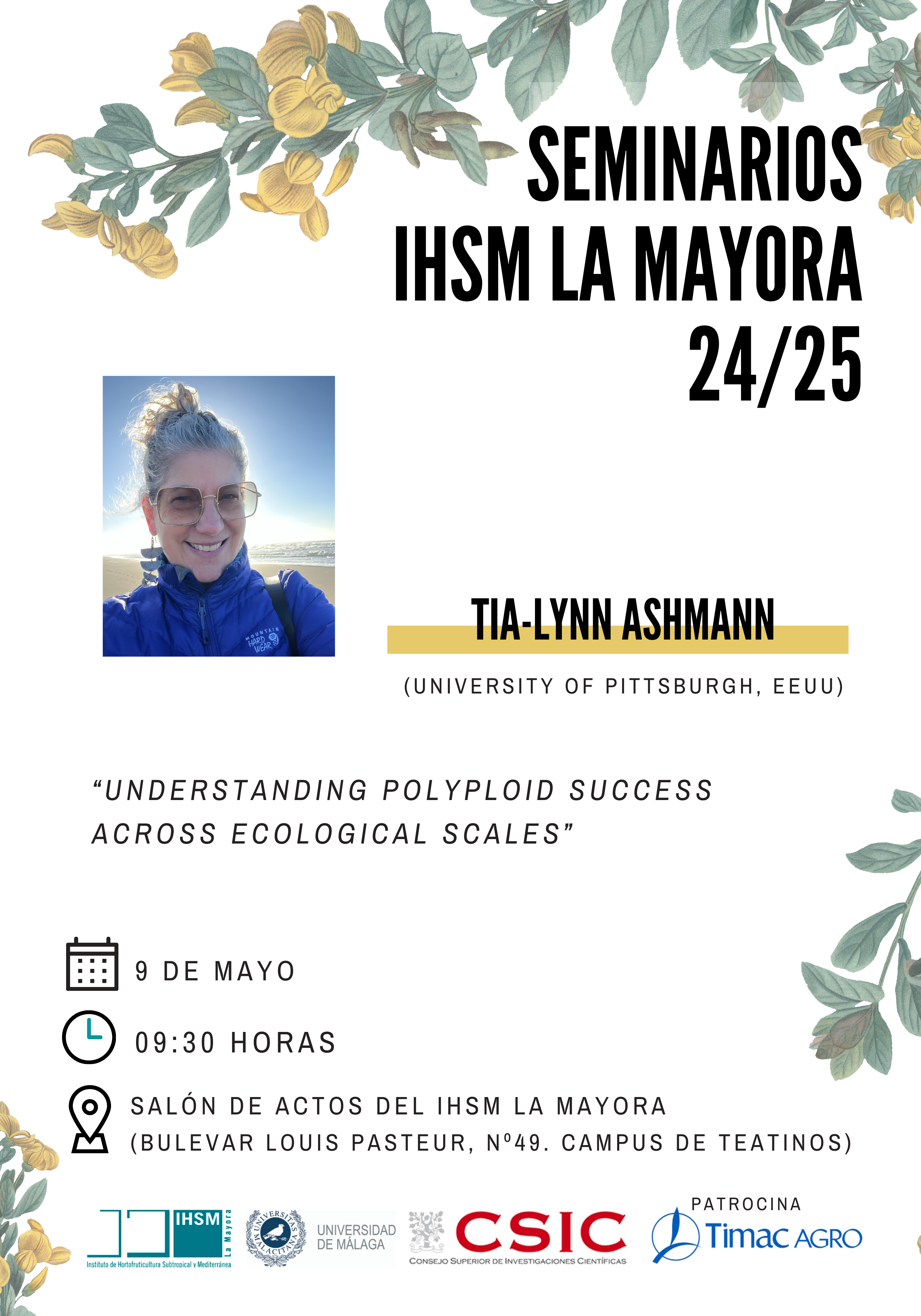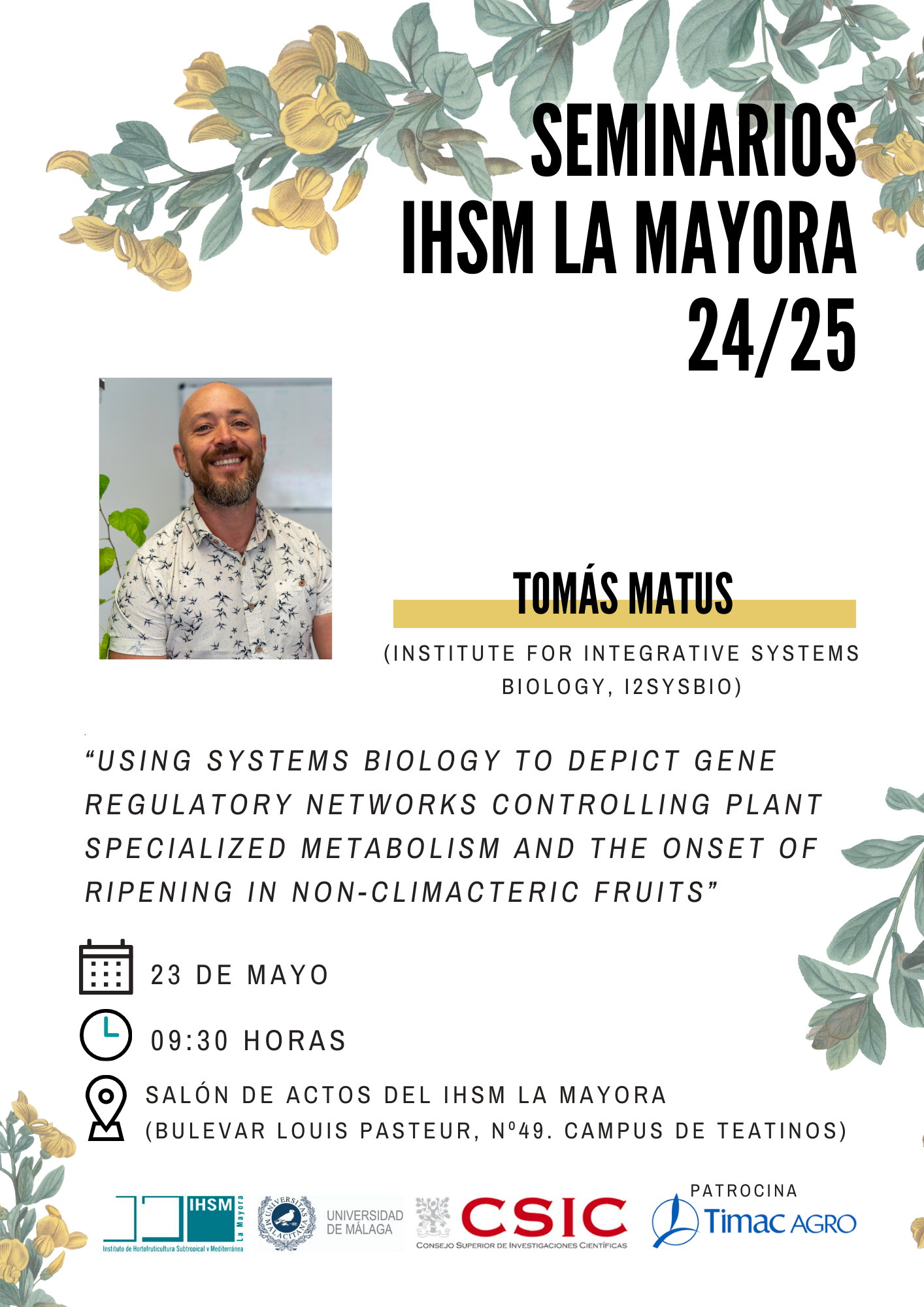
Seminarios IHSM La Mayora - Ester Lázaro (Centro de Astrobiología (CSIC-INTA)
Studying evolution in a test tube Studying evolution is a challenging endeavour due to the inherent complexity of the process and the long timescales typically required to observe significant outcomes. Evolution is driven by two key forces: the generation of mutations and the action of natural selection. However, mutations occur randomly, and selection is shaped by numerous contingencies, making it difficult their study. Additionally, the relationships between genotype and phenotype are often complex and difficult to stablish, as the effects of mutations depend not only on the genomic context in which they arise but also on the environmental conditions. To overcome these obstacles, evolution experiments in the laboratory offer a valuable alternative that allows a control of the variables and to carry out an adequate number of replicates. In this way, it is possible to apply the scientific method to a process that, to a large extent, depends on chance. For these studies to succeed, experimental systems must evolve rapidly and be easy to manipulate and analyse. Viruses, and bacteriophages in particular, meet these requirements and have become powerful models for studying evolutionary processes in real time. In this talk, we will describe some of the studies carried out at Centro de Astrobiología using bacteriophages to explore fundamental questions in evolution. Finally, we will also address the challenges of extrapolating laboratory findings to natural systems and discuss potential strategies to overcome these limitations, highlighting the broader implications of this research.





